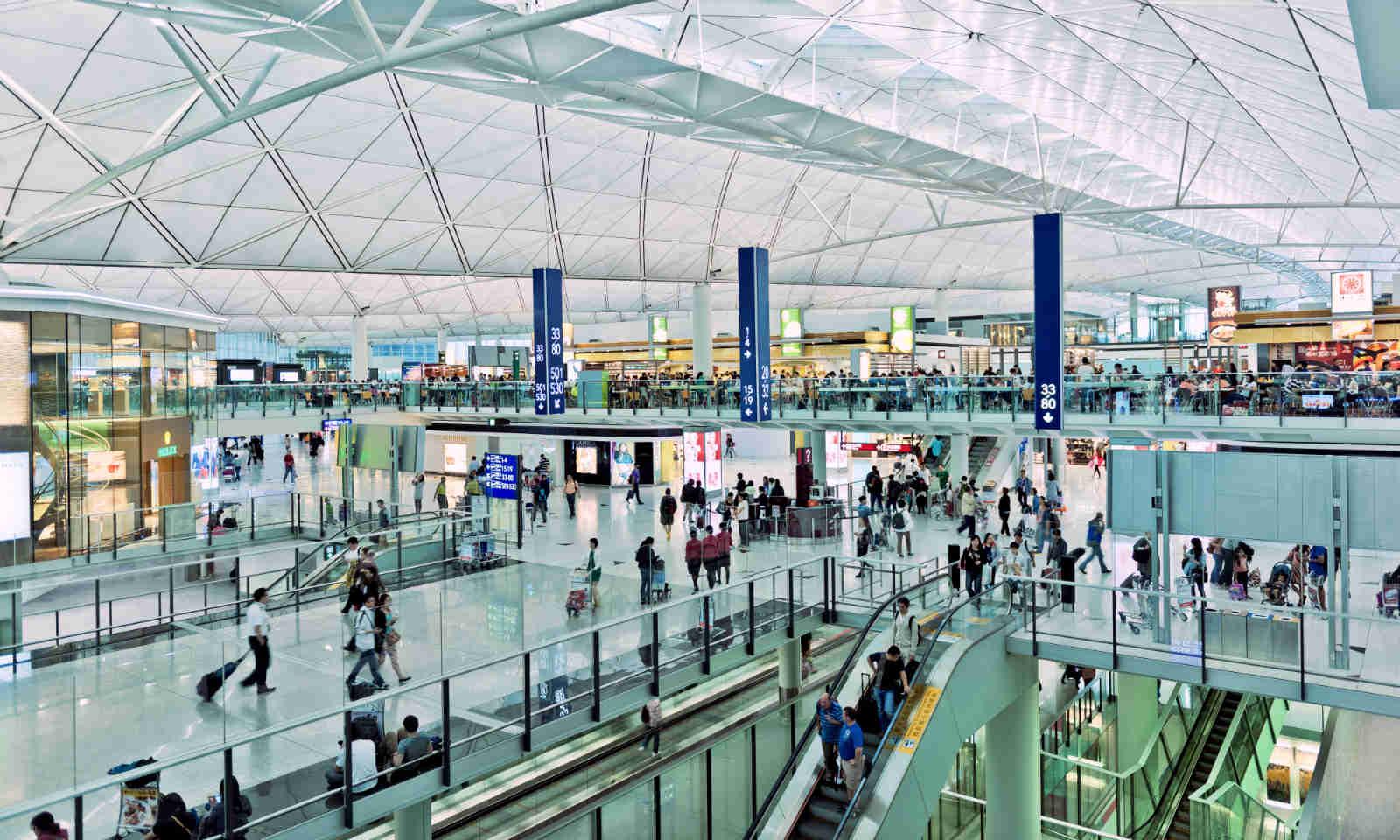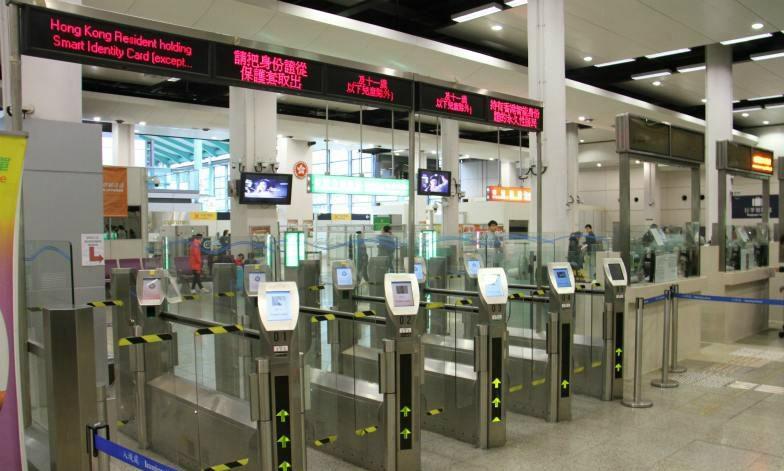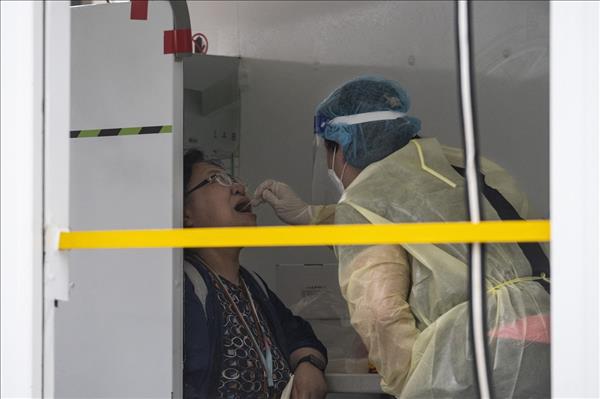
Hong Kong tightens quarantine rules for Omicron
The Hong Kong government has decided to put four South African countries and 12 other countries on its high-risk list as the city recorded four imported cases of the Omicron variant.
Hong Kong's reaction to Omicron seems to be milder than those of many other places. Japan recently stopped all incoming flights for one month. France banned flights from seven African countries at least until Saturday, while Malaysia stopped travelers coming from places where Omicron cases were recorded.
Meanwhile, officials said the plan to resume quarantine-free travel across the Hong Kong-mainland border remained on track and hopefully the details would be announced soon. On Thursday, the government would reportedly unveil a new health code system for people wanting to visit the mainland.
Since early this year, the Hong Kong government has followed Beijing's orders to adopt a“zero local infection” strategy. With tough quarantine rules and anti-epidemic measures, it has in general achieved its targets of having no local cases for about half a year, except that a few incoming travelers were found infected after quarantine but did not cause any outbreaks.
For many months, Hong Kong has categorized 24 countries, including the United States, the United Kingdom, France and Spain, as Group A, or high-risk places. Only fully-vaccinated Hong Kong residents are allowed to return to Hong Kong from these countries and they have to be isolated at designated hotels for 21 days.
On Wednesday, the Centre for Health Protection announced that Hong Kong had recorded a fourth Omicron case.
A 38-year-old man, who arrived in Hong Kong from Qatar on November 24 in transit, remained in the restricted area due to a visa-related issue and tested positive in a pre-departure test on Sunday at Hong Kong International Airport.

Hong Kong International Airport. Photo: iStock
He had not received a Covid-19 vaccination and had been asymptomatic. His CT values were around 30-36, which refers to a low amount of coronavirus in his body. He became the fourth person infected with the Omicron variant in Hong Kong.
Prior to this, the center said a 37-year-old man, who arrived in Hong Kong from Nigeria via Ethiopia on November 24, tested negative upon arrival at Hong Kong airport. But he tested positive last Saturday at a designated quarantine hotel with a Ct value of 27 to 29.
On Sunday, his Ct value was about 20, which refers to an increased amount of coronavirus in his body and indicates a recent infection outside Hong Kong.
On Monday and Tuesday, the government said in two statements that four African countries – Nigeria, Angola, Ethiopia, and Zambia – had been put on the high-risk country list. Non-Hong Kong residents are not allowed to enter Hong Kong from these four countries, as well as eight other African countries that had been on the list previously.
Hong Kong residents from all 12 countries are required to undergo quarantine at the Penny's Bay Quarantine Centre for the first seven days. After that, they will be allowed to finish the remaining 14 days of compulsory quarantine at designated hotels.
At the same time, the government's high-risk country list will include Australia, Austria, Belgium, Canada, the Czech Republic, Denmark, Germany, Israel and Italy from Thursday and Japan, Portugal and Sweden from Friday.
The changes isolate Hong Kong from major countries in North America and Europe and only Hong Kong residents can visit the city.
The government could require inbound travelers to stay longer at quarantine camps upon arrival to prevent the spread of the Omicron variant, but said there was no need to close the border completely at the moment, said Sophia Chan, the Secretary for Food and Health.
“We've been paying attention to the World Health Organisation's reports. Scientists around the world are not quite clear how the variant will impact the pandemic,” Chan said.“The scientific data will be released later. At present, when things are not clear, we are inclined to be stricter, but there's no need to close everything.”
Chan said the government would consider whether to list more regions as high risk, taking into account different facts such as vaccination rates, testing requirements and whether there are any local cases.
However Benjamin Cowling, an epidemiologist at the University of Hong Kong, said it might not be sustainable to quarantine all incoming travelers from high-risk areas for seven days at the Penny's Bay Quarantine Centre.
“Putting people into Penny's Bay for the first seven days makes sense as a risk reduction measure, but I'm not sure it's sustainable,” said Cowling.“What if the head of HSBC comes back to Hong Kong and has to spend a week in Penny's Bay, before going to his hotel – Mandarin Oriental or wherever. It may not be ideal for Hong Kong to ask everybody to stay in Penny's Bay first.”
He said if Omicron became the predominant strain of the virus circulating worldwide, Hong Kong might have to consider constructing a special facility for arrivals to spend the first seven days of their quarantine periods.
University of Hong Kong microbiologist Ho Pak-leung said fully-vaccinated Hongkongers returning from eight African countries should be isolated in quarantine camps for 21 days.
On Tuesday, Chief Executive Carrie Lam said she expected the scheduled“reopening” of the Hong Kong-mainland border would be announced very soon, although Hong Kong had seen rising risks of the latest wave of Omicron cases.

The border between mainland China and Hong Kong. Photo: People.com.cn
Michael Tien, a legislator of the Roundtable, also said quarantine-free travel between Hong Kong and the mainland would probably resume soon if the new Omicron variant did not disrupt the plan.
Commenting on the news that the government would announce a new health code system for Hong Kong residents on Thursday, Tien said he didn't expect the system to involve a new mobile app as the city's people had already been using the LeaveHomeSafe app.
“The health code app that they're going to reveal consists of two parts. One is the LeaveHomeSafe. They will make it mandatory for all restaurants starting next week, but that's in our phone,” Tien said.“So when you enter the mainland you produce your phone to let them download your record, and then they will give you an entry health code app.”
On Monday evening, researchers at the University of Hong Kong successfully isolated the Omicron variant from clinical Covid-19 specimens. Yuen Kwok-yung, a microbiologist at the university, said it would take a few months to make an inactivated vaccine using the Covid-19 virus they had successfully isolated from a specimen.
Read: HK-mainland border to reopen in early December

Legal Disclaimer:
MENAFN provides the
information “as is” without warranty of any kind. We do not accept
any responsibility or liability for the accuracy, content, images,
videos, licenses, completeness, legality, or reliability of the information
contained in this article. If you have any complaints or copyright
issues related to this article, kindly contact the provider above.
Most popular stories
Market Research

- Stocktwits Launches Stocktoberfest With Graniteshares As Title Partner
- Phase 6 Reaches 50% Mark As Mutuum Finance (MUTM) Approaches Next Price Step
- Cryptolists Recognised As“Crypto Affiliate Of The Year” At SBC's Affiliate Leaders Awards 2025
- BTCC Exchange Announces Triple Global Workforce Expansion At TOKEN2049 Singapore To Power Web3 Evolution
- Moonbirds And Azuki IP Coming To Verse8 As AI-Native Game Platform Integrates With Story
- Fanable Gets $11.5M To Power The Future Of Pokémon & Collectibles $COLLECT Token Farming Goes Live Now




















Comments
No comment